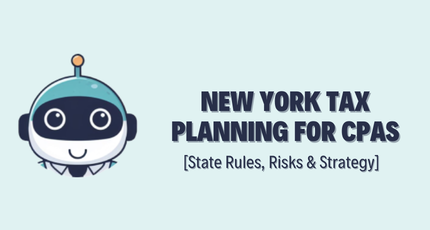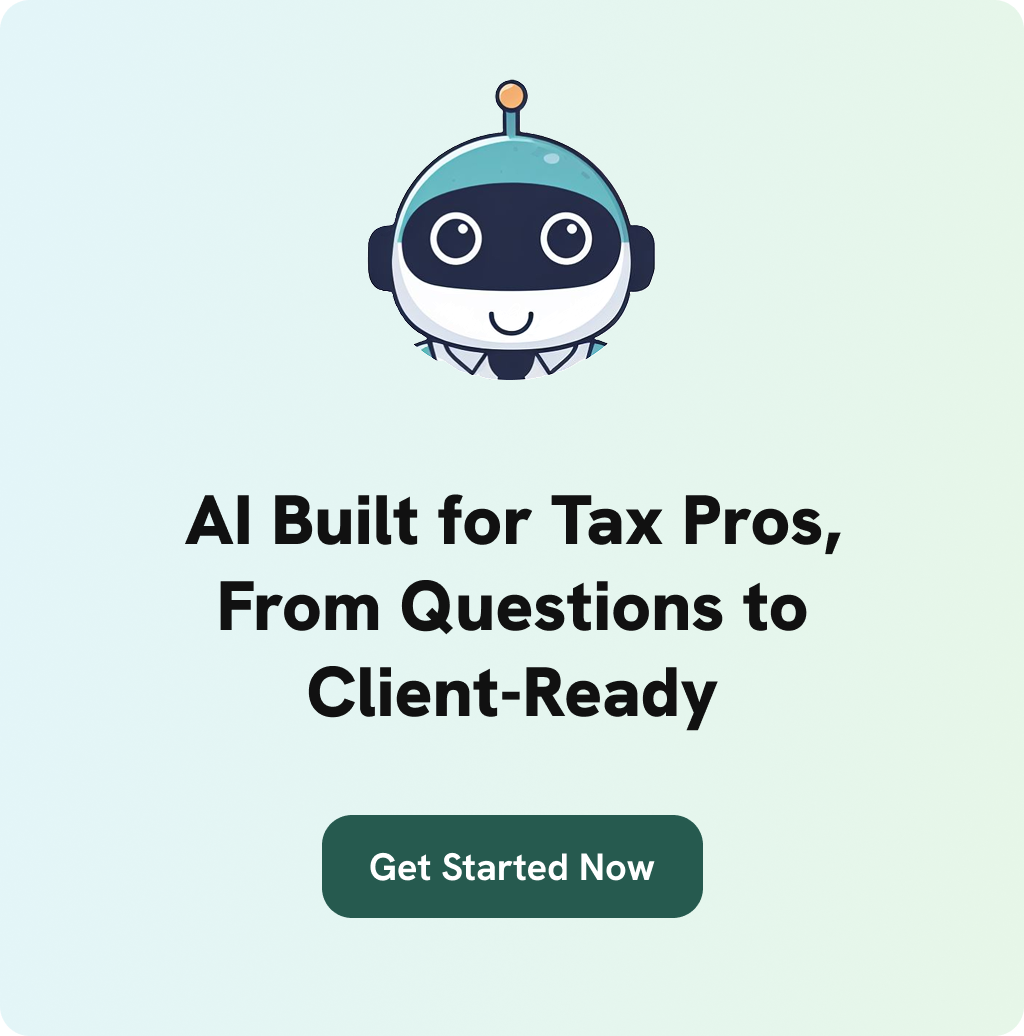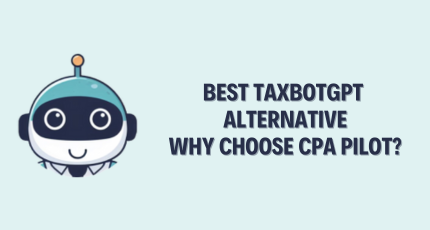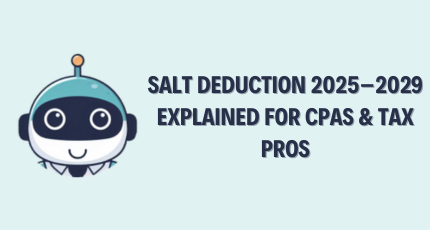How AI is Transforming Tax Research For Small Firms in US?
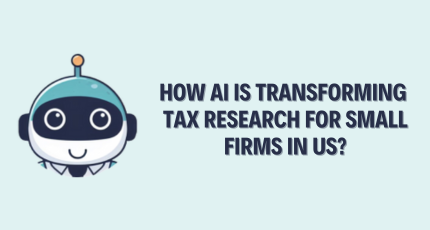
[Last Updated on 5 months ago]
We all know that AI Is Transforming Tax Research For CPAs & Small Firms in US.
But How?
In this post, You will discover how AI is reshaping tax research—boosting speed, accuracy, and compliance while helping firms deliver smarter client insights and strategic value.
AI is revolutionizing tax research, turning tedious data sifting into strategic insight. From real-time regulation tracking to intelligent anomaly detection, AI-powered tax tools are helping accountants and firms save time, reduce errors, and uncover hidden opportunities. But this transformation also brings new challenges—from data security to ethical AI use. Explore how professionals can harness AI to boost accuracy, efficiency, and client trust—while preparing for the next generation of intelligent tax systems.
Artificial Intelligence (AI) is no longer a buzzword—it’s a strategic asset that’s reshaping how tax professionals conduct research, interpret regulations, and deliver client value.
📌 TL;DR — How AI Is Transforming Tax Research for Small Firms in the US
- AI accelerates tax research by analyzing regulations, rulings, and codes in seconds, improving speed, accuracy, and strategic insights.
- Modern AI tools like CPA Pilot, TaxbotGPT, and Bloomberg Tax reduce manual work, detect anomalies, and increase compliance.
- Firms using AI save 5–7 hours per week per professional and gain a competitive edge with better client service and burnout reduction.
- Challenges remain around AI hallucinations, data security, and ethical use—requiring oversight, training, and explainable AI frameworks.
- AI democratizes tax intelligence, giving small firms access to enterprise-level insights and enabling value-based pricing models.
- The future is agentic AI, real-time tax automation, and embedded compliance, reshaping firm economics and professional roles.
- Successful firms invest in AI literacy, prompt engineering, and critical thinking to turn automation into strategic differentiation.
Table of Contents
From Automation to Insight — How AI Accelerates Tax Research?
Modern AI-powered tax platforms can analyze thousands of tax codes, legislative updates, and court rulings in seconds. These systems use natural language processing (NLP) and machine learning (ML) to generate summaries, identify relevant precedents, and even predict outcomes with increasing precision.
Instead of spending hours navigating complex databases, accountants and tax researchers now leverage AI to obtain faster, data-driven insights, freeing them to focus on strategic advisory and client-facing work. Its also helping them with last minute tax planning with AI.
AI Tools for Tax Professionals — Efficiency, Accuracy, and Compliance
Generative AI is streamlining everything from data extraction and document review to compliance monitoring. Automation reduces manual errors and strengthens data governance, ensuring firms remain compliant with rapidly changing tax laws across multiple jurisdictions.
Tools & AI Tax Copilots like CPA Pilot, TaxbotGPT, Thomson Reuters Co Counsel, Bloomberg Tax, Blue J, Hive Tax , Keeper Tax and ChatGPT integrations are redefining workflows by combining tax domain expertise with AI-driven analysis.
Explore how CPA Pilot helps firms deliver faster, more accurate research with less burnout. Book a Demo Today →
Why AI Adoption in Accounting Firms Is a Competitive Advantage?
Studies show that firms integrating AI report a 5–7 hour weekly time saving per professional, leading to effective burn out management, higher profitability and improved client satisfaction. Beyond speed, AI enhances pattern recognition—helping uncover hidden deductions, risk exposures, and optimization opportunities that might otherwise go unnoticed.
As AI continues to evolve, its ability to turn complex tax research into proactive tax strategy represents one of the biggest leaps forward in the accounting profession’s history.
The AI Challenges in Tax Research — Risks, Ethics, and Data Security
While AI delivers speed and insight, the road to seamless adoption is paved with complex ethical, technical, and operational challenges. For tax professionals, understanding these risks isn’t optional — it’s a professional responsibility.
The Accuracy Dilemma — AI Hallucinations and Human Oversight
Generative AI can sometimes produce “hallucinated” information — statements that sound plausible but lack factual grounding. In the context of tax research and compliance, such inaccuracies can lead to misinterpretation of tax laws or flawed recommendations.
That’s why human oversight and source verification remain essential. AI should augment expertise, not replace it. Integrating explainable AI (XAI) frameworks and audit trails ensures accountability and transparency in tax research workflows.
Protecting Client Data — Privacy, Security, and Compliance in AI Systems
Entrusting sensitive financial and tax data to AI models introduces new risks around data privacy, storage, and jurisdictional compliance (e.g., GDPR, CCPA, IRS data-handling standards).
Forward-thinking firms are implementing zero-trust security models, data anonymization, and private-cloud AI environments to protect client information. Maintaining confidentiality is not only an ethical duty but a key component of professional compliance frameworks.
The Real Cost of Adoption — Investment, Training, and the Skills Gap
Deploying AI technology requires a meaningful investment in infrastructure, licensing, and education. Many firms underestimate the learning curve — training staff to use AI effectively is as crucial as the software itself.
Firms that prioritize AI literacy and continuous professional education gain a long-term advantage, while those that ignore the skill gap risk operational bottlenecks and inconsistent results.
Compare plans and see what fits your firm. View CPA Pilot pricing — scalable for solo CPAs to growing firms.
The Ethics of Artificial Intelligence in Tax Advisory Work
The “black-box problem” — where AI decision-making is opaque — presents a significant ethical challenge. Tax professionals must demand algorithmic transparency, ensuring that AI recommendations can be traced, explained, and justified.
Building a responsible AI strategy means aligning technology use with the core values of professional integrity, fairness, and client trust. In the emerging world of AI-assisted tax research, trust is the new currency.
What’s Next for AI and Your Taxes?
The current generation of AI-powered tax solutions is only scratching the surface. The next wave promises deeper integration, autonomous workflows, and real-time compliance intelligence. These developments are not science fiction—they’re the logical evolution of machine learning, automation, and generative AI in professional tax services.
AI is the future of tax research at small firms and CPA Pilot is helping CPAs, providing them ability to provide high-quality, advisory-level service to its clients.
Until now, large firms have held the advantage in tax research, because they have the resources and staffing required to sift through piles of new tax legislation. AI changes all that. The same capabilities that allow professionals across industries to make quick work of massive volumes of data are ready to help tax professionals get the research insights they need in a matter of seconds, using simple, focused queries. Just like many other CPA Pilot customers, your firm can be more efficient, accurate, and confident in its tax research than ever.
The future of tax research starts today. Launch CPA Pilot — built for the next-gen accounting professional.
From Generative to Agentic AI — The Next Leap in Tax Automation
The next frontier is Agentic AI — intelligent systems capable of managing complex tax research workflows end-to-end. Instead of waiting for user prompts, these AI agents will proactively monitor regulations, flag client-specific risks, and draft memos or advisory notes with references and compliance context.
This evolution moves from reactive assistance (today’s chatbots and copilots) to autonomous collaboration, where AI acts as a digital team member that continuously learns and improves through reinforcement learning and process feedback loops.
Embedded Compliance — Real-Time Tax Determination for Every Transaction
The future of tax technology lies in seamless integration. Rather than handling tax compliance as a separate process, embedded tax engines will plug directly into ERP, eCommerce, and payroll systems, ensuring real-time tax determination and automated filing.
For global firms, this means compliance at scale—AI systems that automatically adapt to jurisdictional tax rules, currency conversions, and cross-border reporting requirements without human intervention.
The New Tax Professional — Human Skills in an AI-Driven Era
As AI takes on repetitive analysis, the role of the tax professional evolves from data interpreter to strategic advisor. Skills in critical reasoning, ethical judgment, and client communication will become the most valuable assets in the modern accounting landscape.
Firms that invest in AI literacy, prompt engineering, and data storytelling will empower their teams to harness AI insights responsibly—turning automation into strategic differentiation.
Democratizing Tax Knowledge and Reinventing Firm Economics
AI democratization is leveling the playing field. Smaller firms and solo practitioners can now access AI-driven tax insights once reserved for large enterprises. This accessibility enables value-based pricing models, shifting focus from billable hours to measurable client outcomes.
Over the next decade, expect AI-powered tax agents to make sophisticated tax intelligence available to everyone—from startups to government agencies—fueling innovation and improving compliance worldwide.
Empower your firm with the same AI tools used by top-tier enterprises. Try CPA Pilot now and deliver enterprise-grade tax insights—no enterprise budget required.
Your Future in Tax is AI-Powered – Are You Ready?
The transformation is clear: AI is streamlining compliance, enhancing accuracy, and elevating tax professionals from data processors to strategic thinkers. Yet, this evolution requires a mindset shift — one that balances technological proficiency with professional ethics and judgment.
Why the Future Belongs to AI-Enabled Professionals?
The tax professionals who will thrive in the coming decade are those who understand how to collaborate with AI — validating results, interpreting insights, and applying them to complex client scenarios.
By combining machine efficiency with human context and creativity, you gain a sustainable advantage: the ability to deliver data-backed, future-ready tax advice. This blend of automation and advisory insight is the hallmark of the next-generation accounting leader.
Take the First Step — Building Your Firm’s AI Strategy Today
The future isn’t something to wait for — it’s already here. Whether you’re exploring AI-powered tax research tools, embedding compliance automation, or training your team in AI literacy, now is the time to act.
Start by assessing your current processes and identifying where AI can create immediate value — from data analysis to client communication. Small, strategic steps compound into competitive advantage.
AI won’t replace tax professionals — it will empower them. Those who learn to harness its potential will not only stay relevant but lead the transformation of the tax profession itself.
🔗 Ready to unlock your firm’s AI potential? Subscribe to our AI Tax Planning blog for expert strategies, ethical frameworks, and implementation roadmaps.
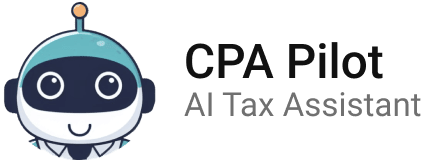
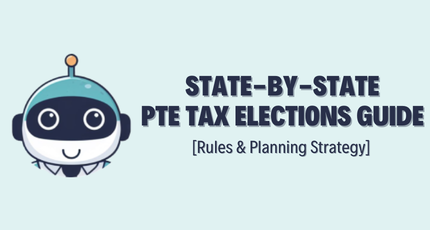
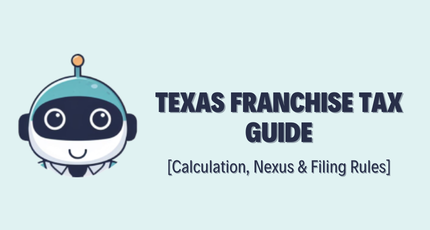
![Florida Tax Planning – Residency, IRS & Multi-State Risk [2026 Guide]](https://www.cpapilot.com/blog/wp-content/uploads/2026/02/Florida-Tax-Planning.png)
